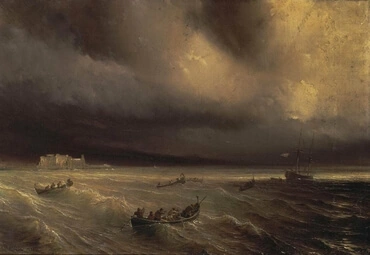Wind (as in west wind)

In the Bible, the wind represents the power of the Lord working on us through the heavens. The Lord is love itself, and by extending His love He created the energy that created the universe, the energy that still sustains and empowers us. That love, and the wisdom that is its form, can act on us more or less directly depending on our spiritual states. A powerful wind indicates a more direct force.
It's interesting to note that the sun corresponds to the Lord, that its heat corresponds to the Lord's love and its light to the Lord's wisdom. In the natural world, the sun's heat causes wind by warming the air. In the spiritual world, the Lord's love causes spiritual wind by acting through heaven.
The Bible also talks about four winds, an east wind and a "wind of the sea." The four winds stand for the whole of the impact of the Lord's love. The east wind is withering, devastating – it represents the Lord's love as experienced by those in hell. The west wind represents stopping or turning aside the flow of the Lord's love – in Israel the "wind of the sea" would come from the west, opposing the east wind.
(Referenties: Apocalypse Explained 418, 419; Apocalypse Revealed 343 [2-4]; Arcana Coelestia 7679, 7702)
Arcana Coelestia #805
805. 'Everything which had the breath of the spirit of life 1 in its nostrils' means people belonging to the Most Ancient Church who had the breath of life 1 in their nostrils, that is, the life of love and of faith deriving from love. This is clear from what has been stated already in 96, 97. Life is what the most ancient people meant by 'breath in the nostrils' or breathing, which is the life of the body corresponding to spiritual things, just as the motion of the heart is the life of the body corresponding to celestial things. Here because the subject is the people before the Flood who from what they inherited from their forefathers had within them seed from a celestial origin, though that seed had been annihilated or suffocated, the statement 'everything that had the breath of the spirit of life 1 in its nostrils' is used.
[2] These words also conceal something quite deeply hidden, which has been dealt with already in 97. It is this: The member of the Most Ancient Church possessed internal breathing, and so possessed breathing that accorded with and was similar to the breathing of angels, which will in the Lord's Divine mercy be described later on. The nature of that breathing varied according to every one of the states of the internal man; but it was altered in the process of time among their descendants down to this final generation of them in whom everything angelic perished. At that point they were no longer capable of breathing in company with the angelic heaven. This was the real reason for their annihilation, and why it is now said that 'they breathed their last' and that 'they died in whom there was the breath of the spirit of life 1 in their nostrils'. After those times internal breathing came to an end, and with it communication with heaven, and consequently celestial perception; and external breathing took its place. And since communication with heaven came to an end in this way, members of the Ancient or new Church were no longer capable of being celestial men, as the most ancient people had been, but spiritual. These matters however will in the Lord's Divine mercy be dealt with later on.
Voetnoten:
1. literally, of lives






